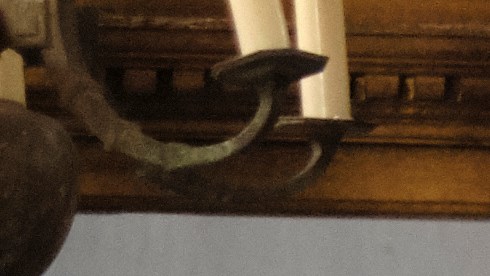The freelance world in 2025 - from TV to content creation and beyond
&cropxunits=490&cropyunits=326&maxwidth=1600&maxheight=900&width=1160&height=653&quality=90)
This session is part of the Connect & Inspire strand which offers a variety of sessions, from in-person networking and online roundtables to in-depth case studies, designed to promote the sharing of knowledge and the building of relationships across Unscripted TV.
Faced with a continuing downturn in TV production and commissioning, many unscripted freelancers and staffers are looking at how they can use their skills and experience to diversify within the industry to stay in work now and to develop their future careers. This session explores the opportunities to diversify into other sectors within the screen industry either alongside or instead of TV work. This will include the growth in digital content production, screen opportunities in teaching, training, marketing etc as well as turning side hustle passions into sources of income.
This session is part of a series of sessions from ScreenSkills responding to the challenges of TV in 2025 and will feature a panel of contributors who have moved away from traditional TV to run successful new careers within and beyond the industry.
Who it's for
From runners to executive producers no one has been immune from this recession, so this session is aimed at both freelancers and staffers across all levels of the industry – researchers, assistant producers, PCs, PMs producer/directors, series producers etc - who have struggled for work in the last two years and who are looking for advice on how to stay in work and navigate their long-term careers.
The majority of the Unscripted Skills Fund (USF) online short course offering is for those at early career stage and above. As a result, we generally require applicants to have at least three credits (unless working in a traditionally uncredited role). If you strongly feel you would still benefit from the training, please email USF@screenskills.com so we can assess if an exception should be made.
We are committed to ensuring all our courses are accessible to everyone. Please email the above address if you have any access requirements and we will be delighted to help, be that clarifying the form such interaction is likely to take or discussing reasonable adjustments.
What it covers
Our industry is facing both short-term economic downturn and long-term seismic change as audiences shift from linear to on demand TV and we experience rapid technological development, changing consumer demand and content delivered across multiple platforms. Faced with the possibility that it may now be difficult for some to sustain long-term full-time TV production careers, this session will aim to explore the new content opportunities away from traditional TV and how to diversify further within and beyond the screen industry with a specialist panel of contributors who are all managing to do that.
Hosted by experienced TV business and creative leader Mark Hill, the panel will discuss and answer audience questions on the changing content landscape.
- Digital production: Our panel will feature guests who have moved away from TV and who are now running successful digital production businesses. They’ll discuss how branded content is changing and the appetite from corporates and charities to use storytelling video content to connect with customers, decision-makers and staff across multiple platforms and how social media platforms are democratising and changing content creation. They’ll discuss the opportunities for TV production freelancers, roles and the different ways of working compared to TV production.
- Diversifying away from production: We will also be looking at the opportunities to use production skills and experience to develop new careers within the wider screen industry and we will hear from contributors who have managed to do that, either alongside or instead of traditional freelance TV work, from lecturing to training, mentoring, marketing and more as well as how we can use our creative skills to developing side hustle passions.
- The new freelance production model? We’ll be asking our panel whether we are now entering a new era for TV freelancers where portfolio working may be the new normal for many of us across a number of job roles and production is more about content rather than just TV? Is the TV freelance model broken or just evolving?
Host
Mark Hill has worked in unscripted TV for over 30 years, running TV production businesses for the last two decades, launching RDF from scratch in Bristol and running BBC Factual there too. He has created and showrun multiple long-running series and worked across most unscripted genres in his career. He now works as a consultant advising small production indies, businesses across the creative digital sector and senior leaders on managing their businesses and careers as well as still working as an active executive producer and development consultant.
Panellists
Lara Akeju is a former commissioning editor with roles at ITV, Channel 4 and Channel 5 as well as many years in production as a freelancer. She left ITV to retrain as an executive coach and how she is now helping TV and creative professionals to adapt to a changing work landscape. Lara thinks we need to rethink our mindsets from “who will have me?” to “what do I really want to be doing?”
Nicola Sands worked as an ITV journalist and reporter, but when the TV work started to dry up for her and her cameraperson husband they managed to diversify into creating digital content for businesses and they took a chance on a small empty industrial unit and turned it into a podcast and green screen studio. Nicola believes that we all have to learn how to push ourselves beyond our comfort zones, be prepared to hustle for new kinds of work and realise that businesses will pay for our TV skills.
Aphra Kennedy-Fletcher is an award-winning TV and film producer who now runs her own talent and media business working with creators to deliver ideas to both traditional and new content platforms. She is passionate about empowering talent off and on screen to take ownership of their work, creating original IP and adopting new technology to support brands and creators alike.
Catherine Miller is an award-winning unscripted producer who has managed to diversify into making digital branded content alongside TV freelance work. In the last couple of years she has worked on TV series like Freddie Flintoff’s Field of Dreams On Tour and The Dog House whilst also making a range of ecological and environment short form content for social channels working for brand agencies. She’s a positive advocate for how TV freelancers can adapt their skills and experience to making storytelling content for multiple audiences and clients.
How to apply
This session will take place online via Zoom. Click ‘apply now’ at the top of the page and follow the instructions to apply for your place: you must login or register before you are able to complete your application.
If you are no longer able to attend, we ask you to please use the 'decline ticket' function on the right hand side of the page so that we can release your place. Our sessions are often oversubscribed, so we’d like to give other freelancers the opportunity to fill available spots. Thank you for your consideration.
This session is supported by the ScreenSkills Unscripted TV Skills Fund which invests in training for the unscripted workforce thanks to contributions from broadcasters, SVoDs and production companies.
This course would normally cost participants to attend but, thanks to this support, we are able to offer it to you for free. If you fail to attend, we reserve the right to request reimbursement of costs, unless your place can be taken by someone else.
&cropxunits=444&cropyunits=444&maxwidth=600&maxheight=600&width=150&height=150&quality=80&scale=both)